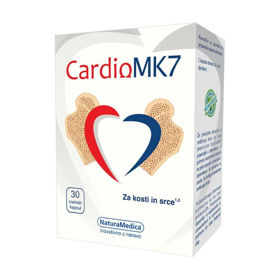Customer question:
How dangerous is a myocardial infarction? Anonymous customer's question
Pharmacist's answer:
Myocardial infarction (heart attack) is a severe condition that occurs when part of the heart muscle is damaged due to a lack of blood supply. The severity of a heart attack depends on several factors, including the size of the affected area of the heart muscle, the speed of treatment, the individual's medical condition, and the speed and effectiveness of medical care.
Potential complications and dangers associated with myocardial infarction include:
- Damage to the heart muscle: A heart attack causes damage to the heart muscle, which can affect the heart's ability to pump blood effectively.
- Heart failure: Heart muscle damaged by a heart attack may not function optimally, which can lead to heart failure when the heart cannot meet the body's needs.
- Arrhythmias: A heart attack can cause heart rhythm abnormalities known as arrhythmias, which increase the risk of cardiac arrest.
- Ventricular fibrillation: this is a severe form of arrhythmia that can cause sudden cardiac arrest and can be life-threatening.
- Pericarditis: inflammation of the pericardium (the thin tissue surrounding the heart) can occur as a complication of a heart attack.
- Thromboembolic events: Clot particles forming in a damaged artery can break loose and cause a blood clot in another part of the body, leading to a stroke or other thromboembolic events.
- Postinfarction angina: After a heart attack, angina (chest pain) can occur, indicating further problems with the coronary arteries.
Prompt action and treatment are vital to reducing damage and complications from a heart attack. Urgent medical care and rehabilitation are critical to improving outcomes and preventing the recurrence of heart problems. People at risk or with risk factors should have their heart health checked regularly and watch for any symptoms of heart problems.
Interesting reading: Mild heart attack symptoms
Interesting reading: Slight heart attack













